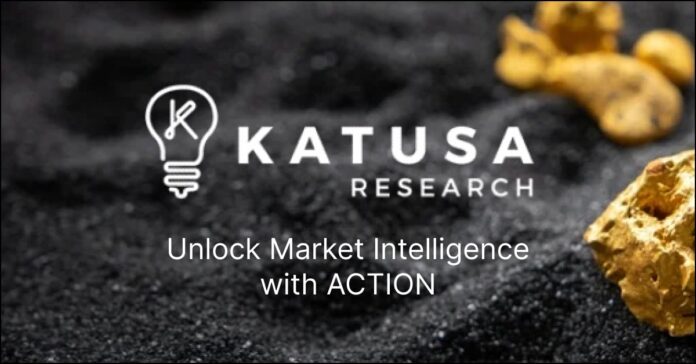This week we need to get you up to date…Because significant news is hitting the wires in the commodities and net-zero world.In a bold move to diversify its economy beyond oil, Saudi Arabia has entered the global mining arena with a $2.6 billion deal, acquiring a 10% stake in Vale SA’s base metals division.It’s a joint venture (JV) between Saudi Arabia’s sovereign wealth fund and state mining company, Ma’aden, and will close in early 2024, pending regulatory approval.This was a very smart move for the Saudi sovereign wealth fund.The agreement allows the kingdom to reach important mining locations, where they extract essential metals that are crucial for the energy transition.It’s a priority set out by the Kingdom…Crown Prince Mohammed bin Salman’s Vision 2030 places great emphasis on the energy transition and the mining industry is a cornerstone for the strategic metals required for the future energy transition and economic diversification.
The initial investments will concentrate on minority equity positions in iron ore, copper, nickel, lithium, and other essential minerals.With Saudi Arabia owning 17% of the world’s petroleum reserves, the country believes it holds over $1 trillion worth of untapped minerals.By exploring and ramping up production from these deposits, the kingdom seeks to achieve its decarbonization objectives.
- Side Note: Just take a look at Saudi Arabia’s Vision 2030 mega-projects (including NEOM) to get an idea of how big into Net Zero the kingdom will become. KSA is making very large financial investments towards their Net Zero plans.
The $2.6 billion stake in Brazil’s largest miner provides Saudi Arabia interests in copper, nickel, and other critical minerals.
A Smart Move into Critical Metals
Vale’s ambitions align with the growing demand for electric vehicles, as they plan to expand copper and nickel mining.
- The mining giant, with a market cap of $67 billion, intends to invest up to $30 billion in new projects across Canada and Indonesia.
The infusion of Saudi funds has boosted Vale’s base metals division’s implied value to $26 billion, as stated by the miner’s chief executive.Vale positions itself to cater to the surging demand for green metals crucial for the global energy transition.Building a Lithium Powerhouse…Lithium takes center stage in Saudi Arabia’s strategy, with plans to establish battery processing facilities as part of a comprehensive battery supply chain initiative.Last year, Ma’aden expressed intentions to invest significantly in exploring battery metals over the next two decades.The country wants to develop a $2 billion EV battery metals plant in partnership with EV Metals Group. And EVM Arabia will establish a $905 million battery chemicals complex in Saudi Arabia later this year.
- Additionally, the kingdom has pledged to procure over 100,000 EVs over the next decade.
Leading automakers like Tesla and Mercedes-Benz are making significant investments to secure high-quality lithium to scale up their full EV battery production.As the world witnesses a growing thirst for EVs, lithium companies are ramping up efforts to supply this critical metal.Companies like American Lithium Corporation (AMLI) are stepping up to provide a safe and stable lithium supply with their vast lithium deposits.Saudi Arabia’s aspiration to become a global leader in minerals and metals sets the stage for billions of dollars of investment in the sector, driving the transition to a global clean energy system.But wait, there’s more…
Major News #2: Carbon Taxes Flex Their Muscle
In the world’s developed and secure nations, the silent tremors of carbon taxes are starting to assert their influence.Back in 2021, I penned an article in my premium research service – Katusa’s Resource Opportunities, delving into the potential repercussions of carbon taxes on company emissions.Some may have dismissed the idea, but with countries like Canada, Australia, and Europe adopting aggressive stances on this issue, it made sense to investigate before the crowd.
- As recent headlines highlight, Rio Tinto faced an $800 million impairment on two aluminia refineries in Australia due to the impact of carbon taxes.
An impairment charge occurs when projected cash flows from an asset fall significantly below its current book value on the balance sheet.Rio Tinto, not fully considering the implications of carbon taxes, had to reevaluate long-term cash flow projections, leading to an $800 million decrease in asset value.This challenge won’t be limited to Rio Tinto alone.For any heavy emitter, it could become a pressing problem.As governments enact carbon tax policies into law, companies must incorporate them into their cash flow projections.Just as the concept of “peak oil” caused the recognition of “stranded assets,” companies in the heavy emitters sectors may face a similar fate.Operations reliant on coal-derived electricity could find themselves at a significant disadvantage, and industries emitting substantial methane quantities might encounter hefty penalties.The rumble of carbon taxes is no longer distant thunder…It is starting to shake the foundations of even the most developed nations, and companies need to prepare for the unfolding storm.It’s one of the sectors that Katusa Research is most excited about in the coming years.Much, much more to come.Regards,Marin KatusaP.S. Last week we promised to introduce you to a new period in the market cycle you’ve likely never heard before, but that will come in next Friday’s Investment Insights.
IMPORTANT DISCLAIMER
Katusa Research, as a publisher, is not a broker, investment advisor, or financial advisor in any jurisdiction. Please do not rely on the information presented by Katusa Research as personal investment advice. If you need personal investment advice, kindly reach out to a qualified and registered broker, investment advisor, or financial advisor. The communications from Katusa Research should not form the basis of your investment decisions. Examples we provide regarding share price increases related to specific companies are based on randomly selected time periods and should not be taken as an indicator or predictor of future stock prices for those companies.American Lithium Corp has reviewed and sponsored this article. The information in this newsletter does not constitute an offer to sell or a solicitation of an offer to buy any securities of a corporation or entity, including U.S. Traded Securities or U.S. Quoted Securities, in the United States or to U.S. Persons. Securities may not be offered or sold in the United States except in compliance with the registration requirements of the Securities Act and applicable U.S. state securities laws or pursuant to an exemption therefrom. Any public offering of securities in the United States may only be made by means of a prospectus containing detailed information about the corporation or entity and its management as well as financial statements. No securities regulatory authority in the United States has either approved or disapproved of the contents of any newsletter.Katusa Research nor any employee of Katusa Research is not registered with the United States Securities and Exchange Commission (the “SEC”): as a “broker-dealer” under the Exchange Act, as an “investment adviser” under the Investment Advisers Act of 1940, or in any other capacity. He is also not registered with any state securities commission or authority as a broker-dealer or investment advisor or in any other capacity.HIGHLY BIASED: In our role, we aim to highlight specific companies for your further investigation; however, these are not stock recommendations, nor do they constitute an offer or sale of the referenced securities. Katusa Research has received cash compensation from American Lithium Corp as reported in their May 8, 2023 news release and is thus extremely biased. It is crucial that you conduct your own research prior to investing. This includes reading the companies’ SEDAR and SEC filings, press releases, and risk disclosures. The information contained in our profiles is based on data provided by the companies, extracted from SEDAR and SEC filings, company websites, and other publicly available sources.HIGH RISK: The securities issued by the companies we feature should be seen as high risk; if you choose to invest, despite these warnings, you may lose your entire investment. You must be aware of the risks and be willing to accept them in order to invest in financial instruments, including stocks, options, and futures.NOT PROFESSIONAL ADVICE: By reading this, you agree to all of the following: You understand this to be an expression of opinions and NOT professional advice. You are solely responsible for the use of any content and hold Katusa Research, and all partners, members, and affiliates harmless in any event or claim. While Katusa Research strives to provide accurate and reliable information sourced from believed-to-be trustworthy sources, we cannot guarantee the accuracy or reliability of the information. The information provided reflects conditions as they are at the moment of writing and not at any future date. Katusa Research is not obligated to update, correct, or revise the information post-publication.FORWARD-LOOKING STATEMENTS: Certain information presented may contain or be considered forward-looking statements. Such statements involve known and unknown risks, uncertainties and other factors which may cause actual results or events to differ materially from those anticipated in these statements. There can be no assurance that any such statements will prove to be accurate, and readers should not place undue reliance on such information. Katusa Research does not undertake any obligations to update information presented, or to ensure that such information remains current and accurate.




